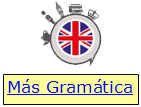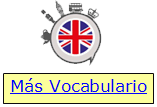|
In spite of and despite mean the
same and have the same grammar:
We went to the beach in spite of the weather.
We went to the beach despite the weather.
In spite of winning the championship he failed the drug test.
Despite winning the championship he failed the drug test.
In spite of the fact that it was a nice day, we stayed at home.
Despite the fact that it was a nice day, we stayed at home.
Despite the fact that it was raining, we still went to the beach.
In spite of the fact that it was raining, we still went to the beach.
Sentence Inversions
Usually, we speak English like this:
“I’ve never seen such a beautiful woman.”
If we want to be more dramatic, we can invert the sentence for greater
effect:
“Never have I seen such a beautiful woman.”
Here’s another example:
“As soon as I finished the beer, he bought me another one”
This can be inverted to:
“No sooner had I finished the beer than he bought me another one.”
You could also say:
“Hardly had I finished the beer when he bought me another one.”
“Barely had I finished the beer when he bought me another one.”
“Scarcely had I finished the beer when he bought me another one.”
¡OJO!
No sooner……than……
Barely/Scarcely/Hardly……when
Here’s an inversion with ‘not only’
“Pepito not only speaks English, but he also speaks Japanese.”
“Not only does Pepito speak English, but he also speaks Japanese.”
We can invert sentences for emphasis and dramatic effect.
Here’s another example:
“Reza didn’t start shooting until he saw the whites of their eyes.”
For more effect, we can say:
“Not until he saw the whites of their eyes, did Reza start shooting.”
We can also say:
“Only when Reza saw the whites of their eyes, did Reza start shooting.”
Or
“Only after he saw the whites of their eyes, did Reza start shooting.”
“She little suspected that she would be famous one day.” – “Little did
she suspect that she would be famous one day.”
“We have never been more proud of our podcast.” – “Never before have we
been more proud of our podcast.”
“You rarely see such a magnificent performance.” – “Rarely do you see
such a magnificent performance.”
“I hadn’t eaten a better steak anywhere.” – “Nowhere had I eaten a
better steak.”
“You shouldn’t be late on any account.” – “On no account should you be
late.”
“You shouldn’t forget your wallet under any circumstances.” – “Under no
circumstances should you forget your wallet.”
“His wife knew little of his serious drinking habit.” – “Little did his
wife know of his serious drinking habit.”
“If I had listened to my teacher, I would have passed the exam.” – “Had
I listened to my teacher, I would have passed the exam.”
First Conditional:
“If you require further information, please do not hesitate to contact
us.”
“Should you require further information, please do not hesitate to
contact us.”
Second Conditional:
“If you got the job, would you be prepared to move to the US?”
“Were you to get the job, would you be prepared to move to the US?”
“If you won the lottery, what would you buy?”
“Were you to win the lottery, what would you buy?”
“Were I to offer you some chocolate, would you accept it?”
“If I offered you some chocolate, would you accept it?”
Third conditional:
“If I had known you were an alcoholic, I wouldn’t have brought the
wine.”
“Had I known you were an alcoholic, I wouldn’t have brought the wine.”
“If I hadn’t eaten so much, I wouldn’t have suffered diarrhea.”
“Had I not eaten so much, I wouldn’t have suffered diarrhea.”
“If you see my ex-girlfriend, please give her my best wishes.” – “Should
you see my ex-girlfriend, please give her my best wishes.”
“If your boss found out, it would be a disaster. – “Were your boss to
find out, it would be a disaster.”
“If I had I known she was going to be here, I wouldn’t have come.” –
“Had I known she was going to be here, I wouldn’t have come.”
“If I had known Mickey were here, I would have invited Craig.” – “Had I
known Mickey was/were here, I would have invited Craig.”
“If you came back as an animal in the next life, which animal would you
choose?” – “Were you to come back as an animal in the next life, which
animal would you choose?”
Sentences can also be inverted after so and such
“He was so nervous during the interview that he couldn’t speak.”
“So nervous was he during the interview that he couldn’t speak.”
“Such was his nervousness during the interview that he couldn’t speak.”
Transform the following sentences using “so” and “such”
“She was so happy that she couldn’t stop smiling.”
With so: “So happy was she that she couldn’t stop smiling.”
With such: “Such was her happiness that she couldn’t stop smiling.”
So goes with the adjective, SUCH goes with the noun.
“We were so surprised to hear about your wedding that we had to phone
immediately to congratulate you.”
So surprised were we to hear about your wedding that we had to phone
immediately to congratulate you.
Such was our surprise to hear about your wedding that we had to phone
immediately to congratulate you.
“Pepito was so depressed that he went to the pub and got drunk.”
So depressed was Pepito that he went to the pub and got drunk.
Such was Pepito’s depression that he went to the pub and got drunk.
“I was so ashamed that I couldn’t show my face.”
So ashamed was I that I couldn’t show my face.
Such was my shame that I couldn’t show my face.
“I ran so quickly that I nearly had a heart attack.” – “So quickly did I
run, that I nearly had a heart attack.”
“She reads so well that she never makes a mistake. ” – “So good is her
reading that she never makes a mistake.” / “So well does she read that
she never makes a mistake.”
“This young man will be so successful that I wonder if he will become
president.” – “So successful will this young man be that I wonder if he
will become president.”
 *Dispones
de más
PODCAST en inglés publicados en los cuadernos anteriores *Dispones
de más
PODCAST en inglés publicados en los cuadernos anteriores
a los que puedes acceder directamente así como al índice de su
contenido. |
|
|
